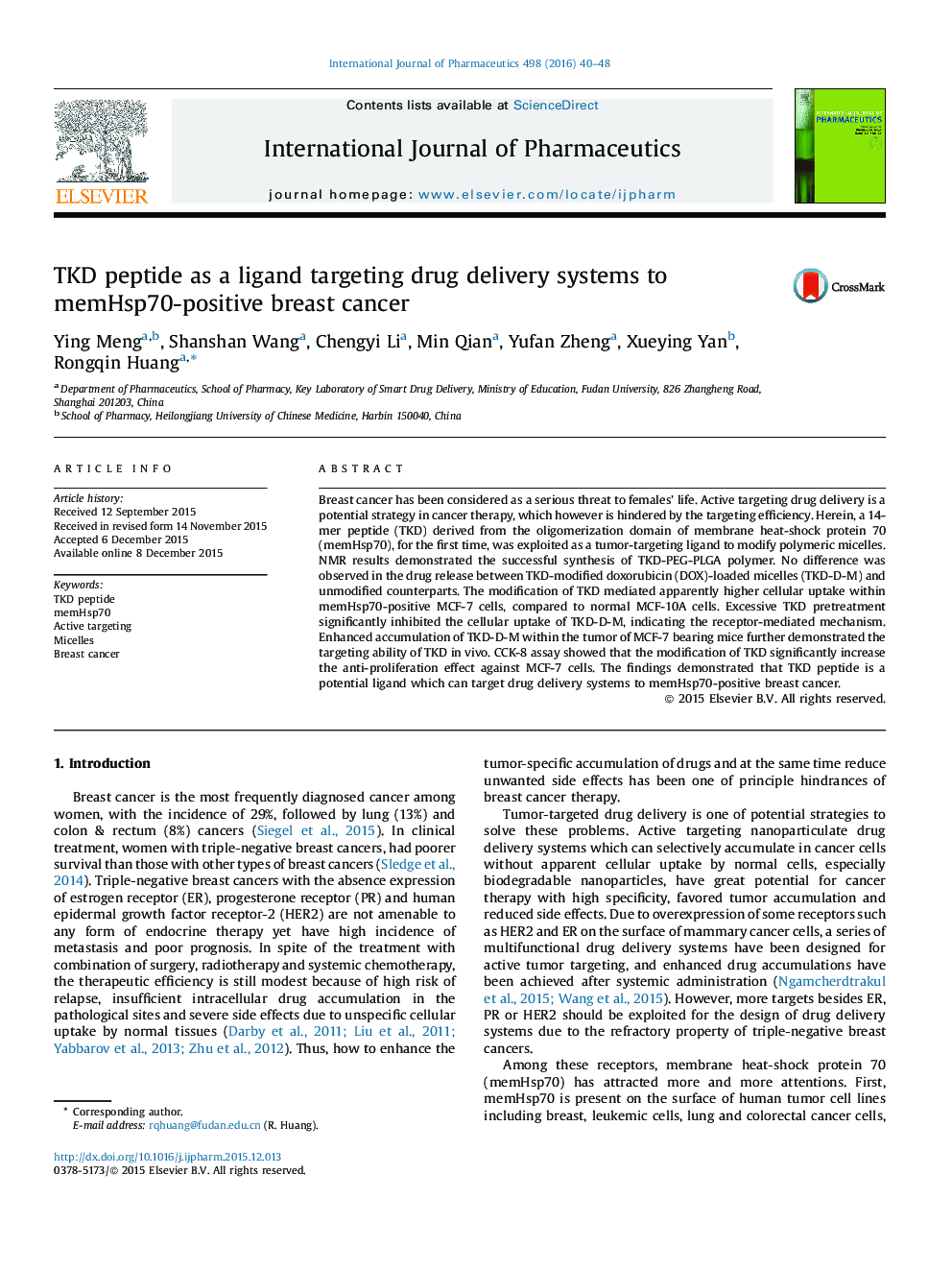| Article ID | Journal | Published Year | Pages | File Type |
|---|---|---|---|---|
| 2501139 | International Journal of Pharmaceutics | 2016 | 9 Pages |
Breast cancer has been considered as a serious threat to females’ life. Active targeting drug delivery is a potential strategy in cancer therapy, which however is hindered by the targeting efficiency. Herein, a 14-mer peptide (TKD) derived from the oligomerization domain of membrane heat-shock protein 70 (memHsp70), for the first time, was exploited as a tumor-targeting ligand to modify polymeric micelles. NMR results demonstrated the successful synthesis of TKD-PEG-PLGA polymer. No difference was observed in the drug release between TKD-modified doxorubicin (DOX)-loaded micelles (TKD-D-M) and unmodified counterparts. The modification of TKD mediated apparently higher cellular uptake within memHsp70-positive MCF-7 cells, compared to normal MCF-10A cells. Excessive TKD pretreatment significantly inhibited the cellular uptake of TKD-D-M, indicating the receptor-mediated mechanism. Enhanced accumulation of TKD-D-M within the tumor of MCF-7 bearing mice further demonstrated the targeting ability of TKD in vivo. CCK-8 assay showed that the modification of TKD significantly increase the anti-proliferation effect against MCF-7 cells. The findings demonstrated that TKD peptide is a potential ligand which can target drug delivery systems to memHsp70-positive breast cancer.
Graphical abstractFigure optionsDownload full-size imageDownload high-quality image (174 K)Download as PowerPoint slide
